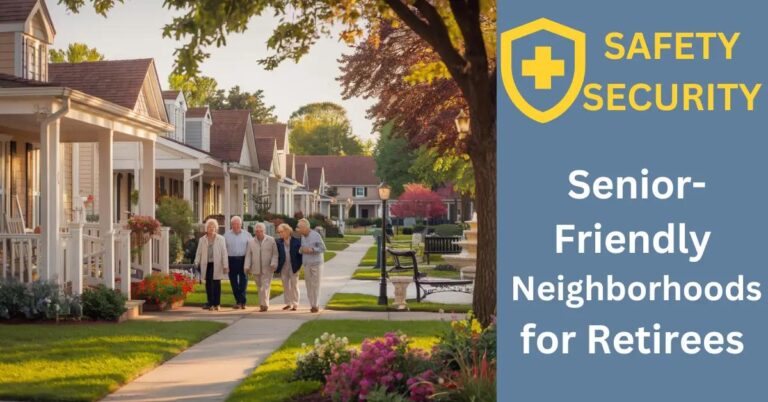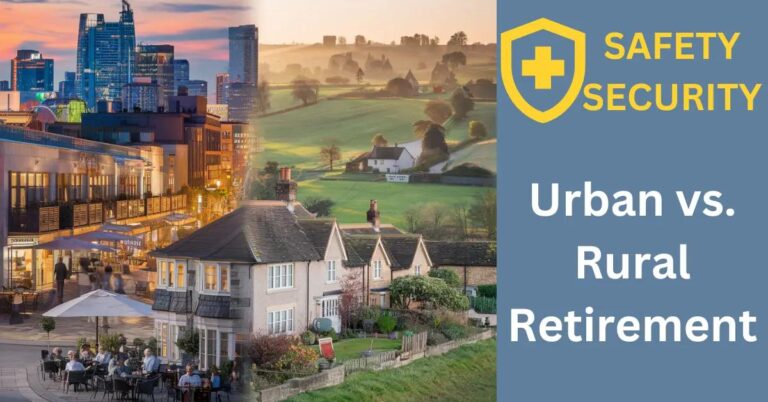TL;DR:
- Key Safety Concerns: High crime rates, corruption, urban violence, and civil unrest are major issues in developing countries.
- Economic Impact: Economic growth improves safety by reducing crime through job creation and education, while poverty complicates safety.
- Political and Legal Frameworks: Political stability and legal reforms enhance safety by reducing crime and corruption, while strong defense policies protect borders.
- Community-Based Strategies: Community policing, grassroots initiatives, public awareness campaigns, and neighborhood watch programs improve local safety.
- International and Technological Contributions: International aid and technology, such as surveillance and cybersecurity, enhance safety, despite rising cyber threats.
- Global Partnerships: Collaboration between countries and organizations like the UN improves security strategies and stability, vital for attracting investment and fostering economic growth.
Living in a developing country as an expat brings both excitement and challenges. But, safety comes first. I’m here to guide you through the maze of safety concerns—from crime rates to the impact of corruption. Understanding urban violence and civil unrest is key to feeling secure. Join me, and we’ll explore how economic growth, legal reforms, and community efforts can make your journey smoother and more secure.
What are the primary safety and security concerns in developing countries?
Safety and security issues are common in developing countries. These countries face unique challenges that can affect daily life. One key problem is high crime rates. These can include theft, robbery, and even violent crimes. Many communities must deal with these challenges every day.
Corruption is another big concern. Corruption weakens trust in safety and security systems. When officials are corrupt, they might not enforce laws fairly. This can make people feel unsafe and insecure in their communities.
Urban violence is also a major issue. Rapid growth in some cities can lead to crowded living conditions. This sometimes results in more violence in these areas. When violence becomes part of everyday life, it heavily impacts families and communities.
Civil unrest is often linked to political or social problems. It can arise from protests, disagreements, or even wars. Civil unrest can disrupt everyday activities, leading to more safety worries for locals.
So, what are safety and security issues? The main concerns include crime rates, corruption, urban violence, and civil unrest. These problems can make living in these countries challenging and unpredictable.
Each of these issues has deep impacts on safety and security. Crime rates affect how safe people feel in their own neighborhoods. Corruption can reduce trust in those supposed to protect citizens. Urban violence and civil unrest can cause fear and instability.
For more insights on related concerns globally, you can explore further resources. Understanding these challenges is the first step towards creating solutions for safer communities.
How Does Economic Development Influence Safety and Security?
Economic growth can lead to better safety. With more money, countries build stronger infrastructure and provide more services. People ask, “How does security affect development?” Precision tells us a lack of security stops growth. When people feel safe, they invest in businesses and education.
Poverty makes safety harder to achieve. To improve safety, development plans use poverty reduction strategies. By creating jobs and supporting education, fewer people turn to crime. A secure society reduces stress and promotes happiness.
Improved infrastructure helps safety. Better roads and public services make emergencies easier to manage. Development can bring new technology that makes police work more effective. Good infrastructure means more secure communities.
Economic plans have reduced crime rates successfully. In some places, community markets offer jobs and lower crime. Such initiatives in South Africa highlight the link between growth and safety. When people work, they avoid crime, leading to safer cities.
Security’s importance in developing countries cannot be understated. Without safety, investments shrink, and hope dims. Strong economies build strong societies, where people thrive and stay safe. Economic development and security go hand in hand, showing that safer communities are possible. By focusing on economic growth, we pave the way to safer living.
What Political and Legal Frameworks Support Safety in Developing Countries?
Political stability is key for safety. Why? It makes everyone feel secure. When leaders are fair and stable, people trust the system. This trust leads to less crime and fear. In many developing countries, political stability can prevent chaos and violence. It builds a strong base where people can live without worry.
Legal reforms improve safety greatly. How? They provide clear rules for everyone. These reforms make sure that laws are up-to-date and fair. With strong legal systems, crime decreases. Everyone knows there are fair consequences for breaking the rules. Legal reform means justice served without bias, ensuring everyone gets fair treatment.
National defense policies are essential to keep a country safe. These policies protect borders and fight any outside threats. Strong defense policies help governments keep the peace. They also show that a country is ready to protect its people. The effectiveness of these policies often relies on resources and training.
The rule of law strengthens governance and security. How is this done? By making sure laws apply to everyone equally, without favoritism. When the rule of law is strong, it stops corruption. As a result, fewer crimes happen. Establishing strong legal frameworks creates an environment where justice is predictable and reliable.
For more on how policy changes improve safety, you can click here. Creating and enhancing safety in developing countries requires these essential steps. Political stability, legal reform, strong defense, and the rule of law are just some starting points. When these frameworks are properly in place, the path to a safer future becomes clearer.
What Community-Based Strategies Can Improve Safety and Security?
Community-based strategies matter greatly for safety and security. These strategies include various efforts that locals start and support. They engage with the community and focus on making their areas safer.
Community Policing involves local officers who know the area well. It helps in reducing crime by building trust between police and residents. When people trust the police, they share useful tips about suspicious activities. This alliance aids in faster crime response and prevention.
Grassroots Security Initiatives are efforts by residents to address safety issues. For example, in some areas, locals organize meetings to identify problems like broken streetlights. Such initiatives empower communities to voice their safety concerns and collectively see solutions.
Public Awareness Campaigns educate people about security. These campaigns teach people about risks and how to avoid them. For instance, posters and community talks highlight the importance of locking doors and reporting strange activities. Education through awareness builds informed communities.
Neighborhood Watch Programs play a big role as well. These are groups of neighbors looking out for each other. Each person takes part by observing and reporting any unusual happenings. When each person keeps an eye on their local area, the overall safety increases.
By incorporating these community strategies, people work together to solve safety challenges they face daily. For more insights on these initiatives, explore this detailed resource. These efforts ensure that everyone plays a part in creating a safer environment, leading to positive changes and reduced crime rates.
How Do International and Technological Advancements Contribute to Safety?
Safety and security are vital for a stable life. In developing countries, they are key for progress. But how can these nations improve safety? Let’s explore how both international support and technology can help.
International aid for security plays a huge role. This aid supports better police equipment, training, and helps build stronger infrastructures. For instance, countries like the United States and China have provided resources to other nations (Humanitarian Aid).
Technology also transforms safety systems. Better technology means smarter security. Surveillance tools, drones, and biometric IDs help monitor and keep communities secure. These advancements make it easier to detect crime.
But cyber security threats are rising. Many developing countries lack resources to fight cyber-attacks. Hackers target weaker systems, causing problems for individuals and businesses alike. Strengthening online defenses is vital to prevent digital crime.
Global partnerships enhance security, too. Countries often join forces to share knowledge and resources. This collaboration leads to improved security tactics and shared security protocols. Organizations like the United Nations play a part in these partnerships.
So, why is safety and security important? They ensure people live without fear and help nations grow stronger. Secure environments attract investments and allow economies to thrive. Without safety, development falters, and progress becomes a challenge.
By investing in international aid, technology, and global partnerships, developing countries can foster a safer future. This approach not only addresses current issues but also paves the way for lasting peace.
Conclusion
We’ve explored safety concerns in developing countries, from urban crime to civil unrest. Economic growth can boost security, especially with poverty reduction strategies and reforms. Political frameworks, supported by stable defenses and strong laws, enhance safety. Community efforts like policing and public awareness are key. Technology and global aid also play huge roles in improving security. It’s everyone’s job to work together for safer communities. Let’s focus on security solutions that bring lasting peace and stability.







